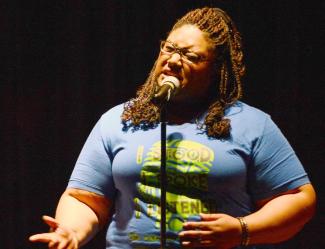
Storytelling is in our blood. No matter where we are from in the African Diaspora, our culture is rooted in story. But this shared experience among our people carries something even more powerful for us.
Stories can heal, and they can help us work through the traumas of racism and white terrorism. Even more than that, they reaffirm our humanity in a society that refuses to honor it. But still, stories run even more deeply.
They have been used to teach our children, preserve our lost legacies, and document shared Black experiences around the world. Now in the age of COVID-19’s social distancing, our stories have more value than ever.
And it seems we are rising to the occasion. From Black teachers reading to home-bound students virtually about the origins of names and places, to controlling the narrative of our people as we fight police brutality, our stories matter.
The bottom line is this: we must always remember how powerful our cultural traditions are, as they have brought us through the horrors of enslavement, the violence of Jim Crow, and even the brutal realities of today.